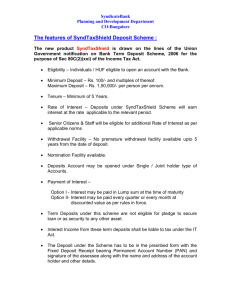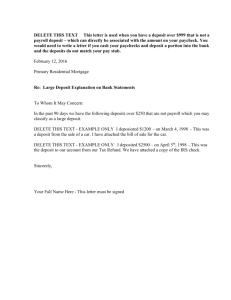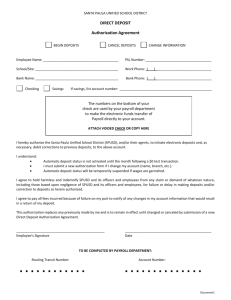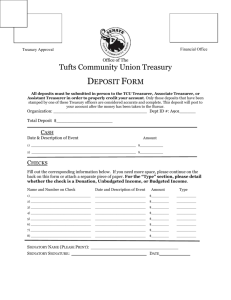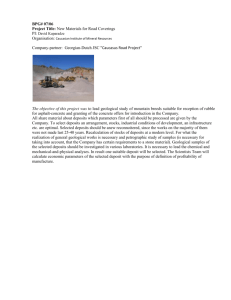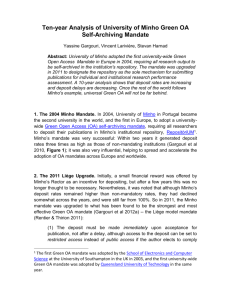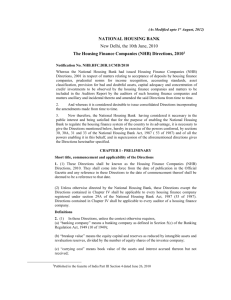Interest_HW22
advertisement
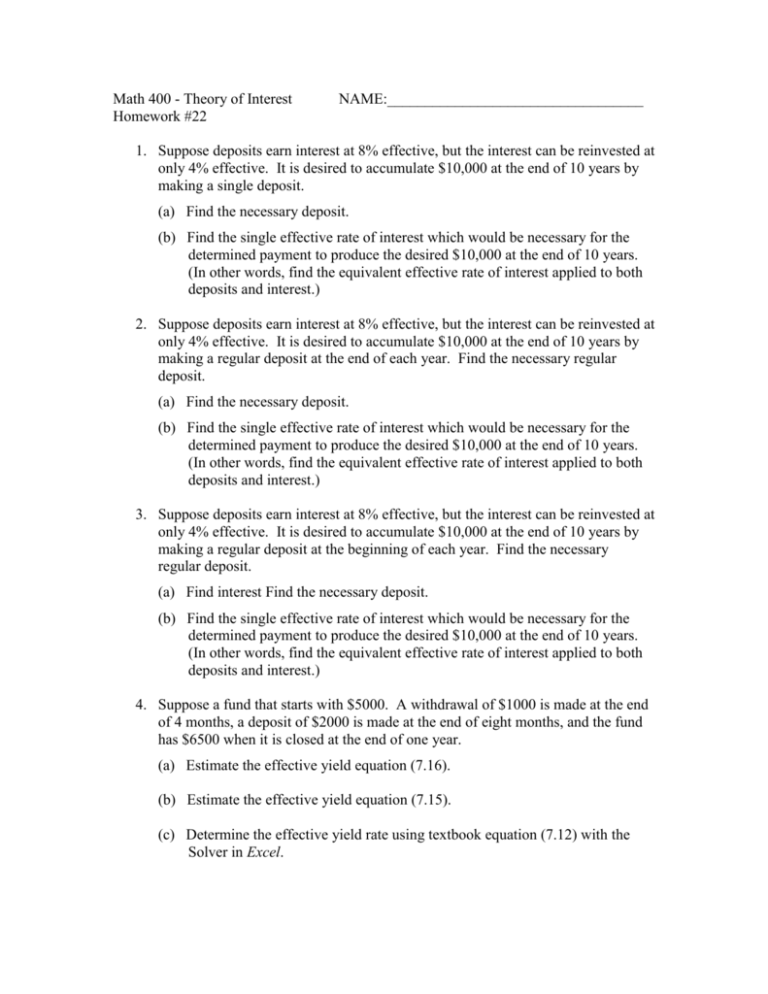
Math 400 - Theory of Interest Homework #22 NAME:__________________________________ 1. Suppose deposits earn interest at 8% effective, but the interest can be reinvested at only 4% effective. It is desired to accumulate $10,000 at the end of 10 years by making a single deposit. (a) Find the necessary deposit. (b) Find the single effective rate of interest which would be necessary for the determined payment to produce the desired $10,000 at the end of 10 years. (In other words, find the equivalent effective rate of interest applied to both deposits and interest.) 2. Suppose deposits earn interest at 8% effective, but the interest can be reinvested at only 4% effective. It is desired to accumulate $10,000 at the end of 10 years by making a regular deposit at the end of each year. Find the necessary regular deposit. (a) Find the necessary deposit. (b) Find the single effective rate of interest which would be necessary for the determined payment to produce the desired $10,000 at the end of 10 years. (In other words, find the equivalent effective rate of interest applied to both deposits and interest.) 3. Suppose deposits earn interest at 8% effective, but the interest can be reinvested at only 4% effective. It is desired to accumulate $10,000 at the end of 10 years by making a regular deposit at the beginning of each year. Find the necessary regular deposit. (a) Find interest Find the necessary deposit. (b) Find the single effective rate of interest which would be necessary for the determined payment to produce the desired $10,000 at the end of 10 years. (In other words, find the equivalent effective rate of interest applied to both deposits and interest.) 4. Suppose a fund that starts with $5000. A withdrawal of $1000 is made at the end of 4 months, a deposit of $2000 is made at the end of eight months, and the fund has $6500 when it is closed at the end of one year. (a) Estimate the effective yield equation (7.16). (b) Estimate the effective yield equation (7.15). (c) Determine the effective yield rate using textbook equation (7.12) with the Solver in Excel.

